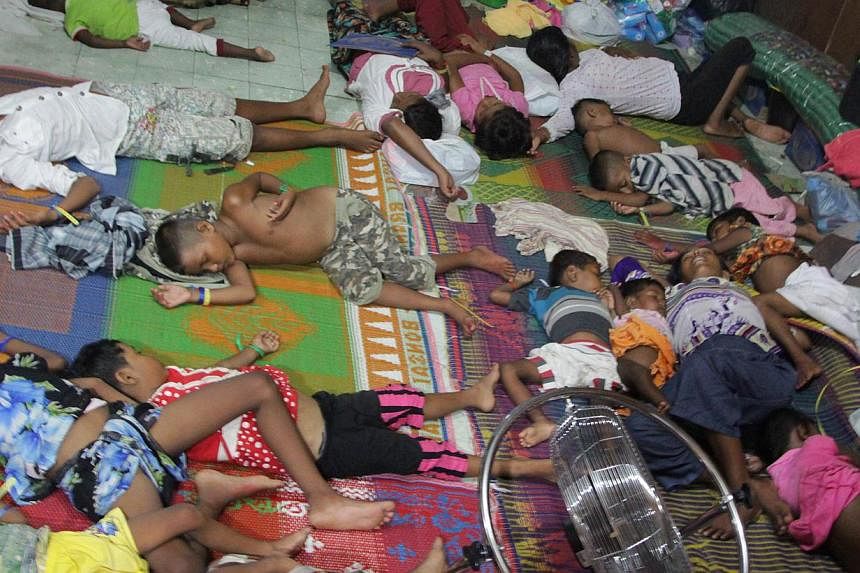Myanmar delivered some sharp words to detractors at the opening of a regional meeting to resolve the boat people crisis, demanding that they refrain from singling it out for causing the exodus of migrants recently stranded in the Andaman Sea.
Finger pointing "will take us nowhere", said Mr Htein Lin, director-general at Myanmar's Ministry of Foreign Affairs in Bangkok on Friday.
Every country has its own challenges, he said. "Some issues fall within domestic jurisdiction."
Myanmar denies citizenship to Muslim Rohingya, who have formed the bulk of tens of thousands of migrants fleeing the country for Malaysia in the past few years. They are joined on rickety boats by economic migrants from Bangladesh, who similarly fall into the hands of traffickers demanding ransoms for their freedom.
The meeting on Friday brought together 17 mostly Asian countries, along with the United States, Switzerland and international organisations such as the International Organisation for Migration (IOM) and the United Nations High Commissioner for Refugees (UNHCR).
Mr Htein Lin's rebuke was largely directed at UNHCR Assistant High Commissioner Volker Turk, who said that addressing the root causes of the exodus "will require full assumption of responsibility by Myanmar to all its people".
"Granting of citizenship is the ultimate goal," he said.
Thailand's Foreign Minister Tanasak Patimapragorn warned in his opening address that "the influx of irregular migrants... has reached alarming levels," creating an urgent regional problem needing a united response. "We need a concerted effort by all countries concerned."
In remarks to reporters later, he refused to single out any particular country for blame, but stressed that the meeting sought to derive concrete solutions under a "friendly atmosphere".
Bangladeshi Foreign Secretary Shahidul Haque, meanwhile, revealed that 30 per cent of recently rescued victims were Bangladeshi nationals. The rest are presumed to be Rohingya Muslims.
Mr Haque said Bangladesh would take full responsibility of repatriating its nationals that were recently rescued in South-east Asian waters.
The IOM on Friday committed another US$1 million (S$1.35 million) to resolving the crisis, on top of another million it has already committed. The United States is also due to announce additional funding later on Friday, said its Assistant Secretary of State Anne Richard.
Earlier this month, Thai authorities launched a long-overdue crackdown on the human smuggling trade in the country's deep south, after dozens of bodies were pulled from mass graves in a remote border area studded by migrant camps. The crackdown threw the multi-million-dollar industry into disarray as traffickers abandoned their victims on land and at sea.
On the Malaysian side of the border, authorities found 139 suspected migrants' graves this week in Wang Kelian, Perlis.
More than 3,500 migrants have arrived on Thai, Malaysian and Indonesian soil in recent weeks following the Thai crackdown. Thousands more could still be trapped in the sea as the monsoon season approaches.

